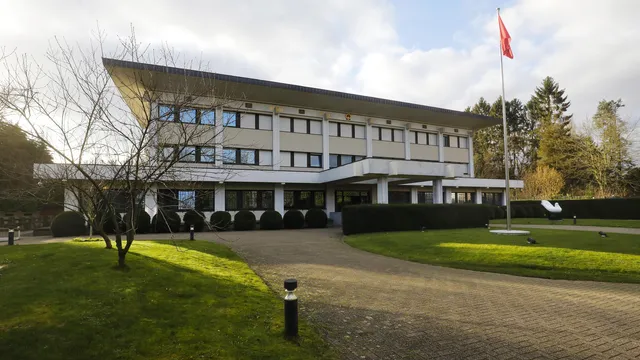The People's Republic of China, which owns a plot of land located within a residential area in the Brussels municipality of Woluwe-Saint-Pierre, is not allowed to invoke diplomatic immunity to bypass the commune's usual planning permission rules.
The Chinese embassy applied for planning permission in 2020 to erect a building complex of about 13 metres wide by 66 metres deep and 15.70 metres high, with 21 flats and 28 parking spaces reserved for its embassy staff on the Avenue Bois du Dimanche in Woluwe-Saint-Pierre.
On 14 April 2021, however, the owners of the adjacent plot brought an action before the commune's Justice of the Peace. They wanted to confirm that the easement – the right to cross or use someone else's land for a specified purpose – had been established in favour of their property, as this right prohibits the adjacent plot (belonging to China) from building anything other than one or two villas on it.
No diplomatic immunity
In the meantime, on 29 April 2022, the Brussels-Capital Region Government also refused the Chinese planning permission request. Still, the neighbours upheld their claim before the justice of the peace, who settled the dispute by a judgment of 6 February 2023.
The justice of the peace ruled that, among other things, the People's Republic of China could not invoke any diplomatic immunity contained in the Vienna Convention of 1961, as this immunity can only be invoked by persons (diplomats) representing a state.
Additionally, the rules stated that the legal immunity of the state only concerns "acts of sovereignty" and not, as in this case, acts of management that can be performed by any private person.
Related News
Even though the planning permit was rejected, the judge also ruled that the neighbours still retain an interest in having an easement recognised by declarative judgment in favour of their land, as there is "a serious and concrete risk" that China will submit a new planning application.
The judgement also states that the property titles of the disputed estates contain similar clauses – inserted as part of a previous subdivision – which limit the building possibilities on the plots to the construction of one isolated villa or two semi-detached ones.
Lastly, these clauses constitute an easement which must be respected when a new building is constructed.

